Here's what I would like to a achieve as a function in Excel, but I can't seem to find a solution to do it in R.
This is what I tried to do but it does not seem to allow me to operate with the previous values of the new column I'm trying to make.
Here is a reproducible example:
library(dplyr)
set.seed(42) ## for sake of reproducibility
dat <- data.frame(date=seq.Date(as.Date("2020-12-26"), as.Date("2020-12-31"), "day"))
This would be the output of the dataframe:
dat
date
1 2020-12-26
2 2020-12-27
3 2020-12-28
4 2020-12-29
5 2020-12-30
6 2020-12-31
Desired output:
date periodNumber
1 2020-12-26 1
2 2020-12-27 2
3 2020-12-28 3
4 2020-12-29 4
5 2020-12-30 5
6 2020-12-31 6
My try at this:
dat %>%
mutate(periodLag = dplyr::lag(date)) %>%
mutate(periodNumber = ifelse(is.na(periodLag)==TRUE, 1,
ifelse(date == periodLag, dplyr::lag(periodNumber), (dplyr::lag(periodNumber) + 1))))
Excel formula screenshot:
